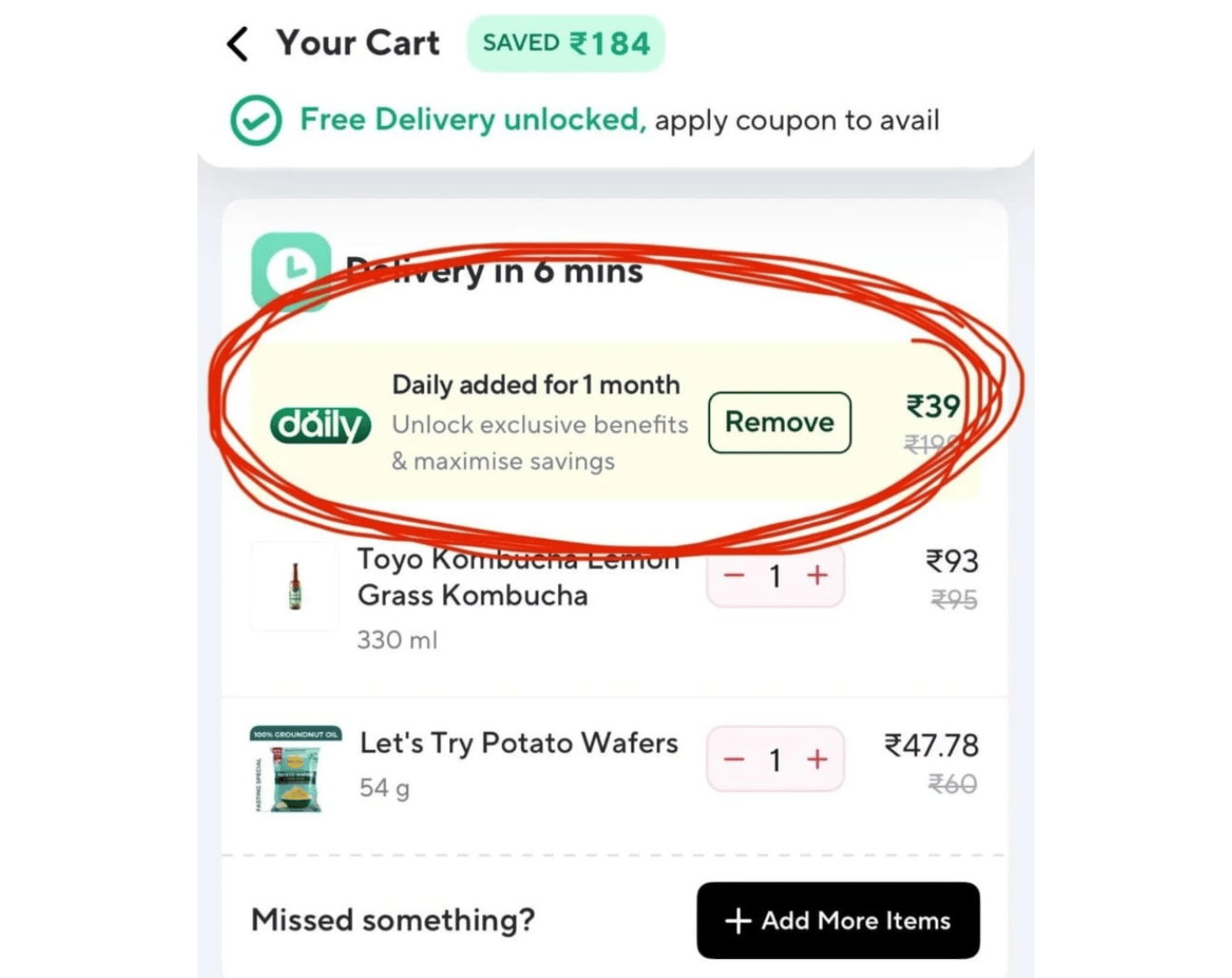Amid rising complaints about dark patterns being employed by online platforms, consumer affairs minister Pralhad Joshi has asked ecommerce companies to conduct self audits to analyse and remove dark patterns.
Chairing a high-level stakeholder meeting, Joshi said that there has been a significant surge in consumer complaints related to dark patterns on the National Consumer Helpline.
“Companies must not wait for the Central Consumer Protection Authority (CCPA) to intervene. They should proactively recognise and remove these deceptive practices before notices are issued. This is not just regulatory compliance—it’s about building trust with your consumers,” Joshi noted.
Department of consumer affairs’ secretary Nidhi Khare said that dark patterns undermine consumer autonomy, manipulate purchasing behaviour, and have a detrimental impact on consumer trust and welfare.
Moving forward, 23 companies, including the likes of Zepto, Eternal’s Zomato and Blinkit, Rapido, Paytm, and Netmeds, have agreed to fully comply with consumer protection guidelines and integrate them into their internal governance and mechanisms.
During the meeting today, the Centre reiterated its “readiness to support businesses in implementing the guidelines and welcomed continued collaboration with industry, academia, and civil society to keep India’s digital marketplace fair and inclusive”.
Further, Joshi said that the CCPA’s consumer protection Jagriti App’s dashboard serves as a robust analytical tool, generating detailed reports on dark patterns for ecommerce platforms under the CCPA’s scrutiny.
The Menace Of Dark PatternsFor the uninitiated, dark or deceptive patterns are techniques used by online platforms to manipulate users into making purchases or decisions not best in their interest. These might include telling a user that a single piece of an item is left, thereby creating urgency, or adding an additional item in purchase without explicitly taking consent.
From food delivery and fashion to 10-minute deliveries, have been a common issue in the fledgling Indian ecommerce sector for years now. For instance, in the case of Zepto, some users have pointed out that the startup tries to push its recently launched everyday delivery plan ‘Zepto Daily’ on each purchase.

“Every time I order, they sneakily add this Zepto Daily Pass. I have to manually remove it and select “I don’t want to save money”. Also, I have to manually apply the free delivery option every time or I have to pay INR 30 extra,” a user wrote on Reddit.
In the case of its competitor Blinkit, there have been instances of users getting charged with additional hidden handling fees and small cart charges. These often take the prices, which may seem competitive at first glance, to higher than average.
Not to mention that this isn’t a quick commerce only problem but rife across ecommerce.
Recently, the CCPA issued a notice to Uber over its “advance tip” feature for faster ride confirmations. While it doesn’t explicitly qualify as a dark pattern, it still is an indirect burden on the wallet of the user. Uber’s competitors Ola and Rapido are also under the regulator’s lens for employing this tactic.
Centre’s Long Battle Against Dark PatternsTo note, this isn’t the first time that the government has consumer-facing platforms.
Last year, the department of consumer affairs made ecommerce platforms, including Zomato, AJIO, JioMart, Netmed, BigBasket, among others, take a pledge to voluntarily commit to detecting and preventing false representations in transactions to protect consumer interest.
In today’s meeting, Khare pointed out that the use of dark patterns directly infringes upon the commitments these companies made six months ago.
In December 2023, . It also identified 13 types of dark patterns employed by online platforms, including false urgency, basket sneaking, confirm shaming, among others.

The guidelines are applicable to all platforms offering goods or services in India, including advertisers and sellers. Non-compliance with these guidelines can result in penalties under the Consumer Protection Act, 2019, including potential fines and imprisonment.
As per a report by PTI, Khare said today that the CCPA has issued 11 notices to companies for employing dark patterns. Overall, she said more than 400 notices have been issued for unfair trade practices.
The post appeared first on .
You may also like

'I asked for PoK as dakshina': Spiritual guru shares blessing given to Army chief Upendra Dwivedi

A new 'war' outside of the battlefield

From hills to high seas: Two women, One global voyage

How legally correct is Kareva Vivah? Know what the law says about i

Loose Women's Nadia Sawalha says 'I could be let go tomorrow' as she sobs over ITV cuts







